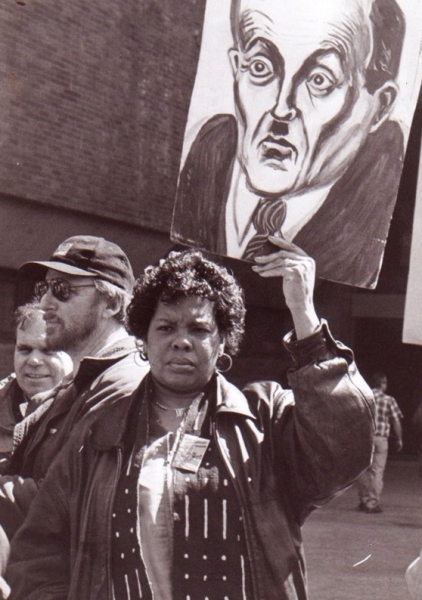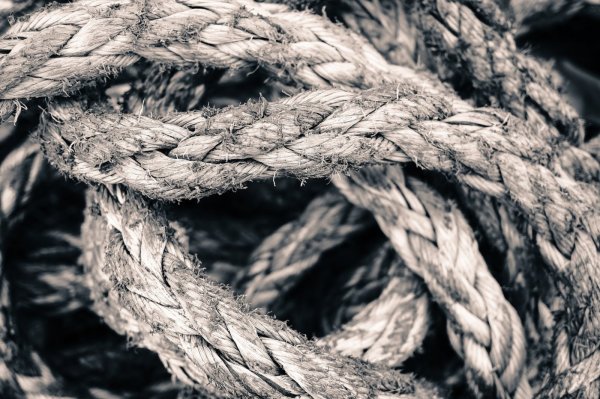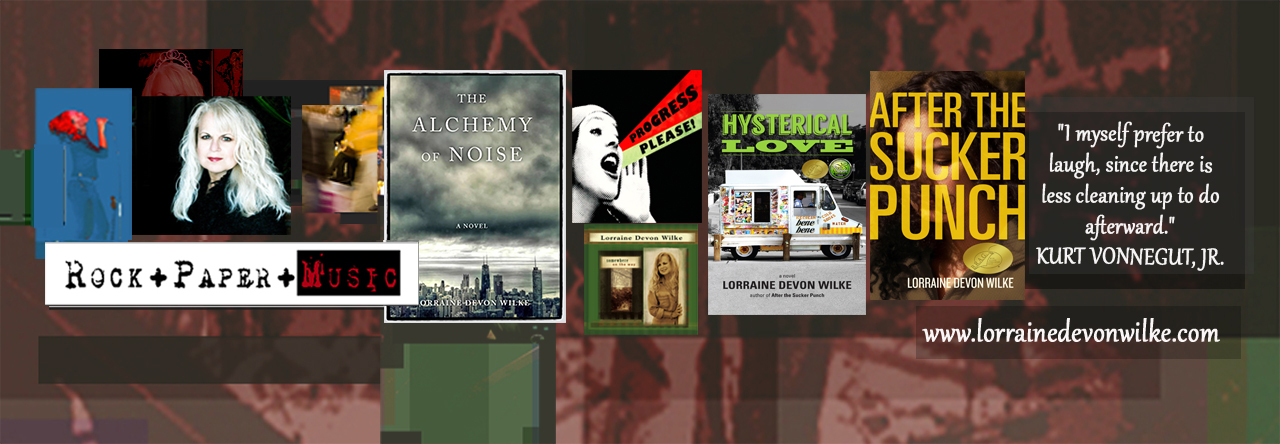
Say what you will about social media and the tendency of some to either trivialize or troll it on a far-too-constant basis, the platform has provided a vibrant, interactive forum through which to meet people we might not have otherwise. And sometimes that’s a very good thing.
I met Regina McRae via social media, from far across the country, and from very different avenues of life. And her contribution to my perspective, my greater understanding of what it is to be a black person in America in the year 2015, has been one of those very good things. It’s “schooled” me, in ways that have broadened my view of race and the impact of its politics on both black and white America.
If you read my three-part Huffington Post series of interviews with Regina, this post will not be news. But for those who have not yet caught up with the discussion, or who’d like to read and share it as a compiled piece, I’m posting it here as well.
Because I believe it’s an essential conversation, one desperately needed in our cultural effort to understand why #BlackLivesMatter, why riots happened in Ferguson and elsewhere, and how activists are inspiring people of every race to raise a ruckus—and our consciousness—in hopes of creating true change. I hope you’ll read all three segments; share them, comment on them, pose your own questions…I promise one or both of us will respond!
Regina gave me the respect of her candor, her unvarnished perspective, and I not only appreciated both, but am grateful for the education they offered. I hope you’ll find her words illuminating as well.
REGINA AND I TAKE IT ON, PART 1: TWO WOMEN — ONE BLACK, ONE WHITE — DISCUSS RACIAL POLITICS, ‘GOOD WHITE PEOPLE,’ AND #BLACKLIVESMATTER

I’ve never met Regina McRae. We’ve spoken on the phone, exchanged emails, connected on social media, but we’ve never actually met… which means we have a typical friendship in this 2.0 world! We originally crossed paths when she came upon a piece of mine, No, White People Will Never Understand the Black Experience, which led to our connecting on Facebook, and, from there, regular interaction on various topics posted.
Given her background as a black woman from Brooklyn who built her own bakery, Grandma’s Secrets, was a Food Network winner, as well as authored the book, Taking The Cake, The Ultimate Cake Guide, her posts were a feisty mix of culinary insight, humorous cultural commentary, and some very unbuffered perspective on issues of race. I liked what she brought to the conversation, and was paying attention when one post in particular grabbed me.
Since last year’s infamous debacle in Ferguson, MO, the specific issue of #BlackLivesMatter has been a conflicted one for many… including me. Despite being an open-minded, politically progressive person fortunate to have been raised on the principle that “all people are created equal,” I found myself thrown when the hashtag made its cultural entrance. My initial response was a familiar one: “Of course, black lives matter; all lives matter.” I wasn’t clear why we were being asked to differentiate, to specify, as if other categories of lives didn’t warrant the same emphasis. I didn’t object to the hashtag, but I didn’t know how to rationalize the selectiveness.
Then Regina posted something on Facebook, a response directed at someone who was obviously having a similar struggle, and, included in a longer message, was this line:
“We know all lives matter, but our country obviously doesn’t! The fact that we have to put up such an obvious sign and hashtag, there’s the problem right there.”
Simple, direct, but right to the irony of the issue, underscoring the “ideal vs. fact” element of the debate. It struck a chord. It also triggered some thoughts on a parallel that resonated with me:
If I, as a woman fighting for women’s causes, were to say to someone, “Women’s lives matter” and their response was, “Yeah, sure, but all lives matter,” I would immediately feel dismissed and diminished, as if my cause, my fight as a marginalized group, was being minimized. For whatever reason, that helped me understand why embracing the #BLM hashtag mattered. I had to get in touch with Regina…
Click HERE to continue reading….
REGINA AND I TAKE IT ON, PART 2: PROFILING, POLICE BRUTALITY, AND THE POLITICS OF #BLM

….LDW: Great change generally takes more than a gentle touch; history has taught us that. So, yes, in this presidential cycle, candidates will be obligated to address the topic of race politics and brutality. It’s good to hear that Hillary Clinton has agreed to meet with #BLM activist, DeRay McKesson, but is there a danger of making politicians’ response to #BLM a superficial litmus test?
Meaning, we know there are several conventionally accepted “tests” for candidates on both sides of the political aisle. There have been hissy fits when candidates were found not wearing an American flag lapel pin (I remember Obama getting grief for that at some point), or demands that candidates publicly declare a belief in God. Personally, I think items of that nature should be off the table of discussion, particularly given how transparent compliance can become.
So do the demands of #BLM activists—for candidates to declare support for the movement—risk becoming another one of those manipulated litmus tests? Candidates make a big show of their support, their “long history of working for racial justice,” etc., but if the rhetoric comes only after a #BLM disruption, how authentic is it?
RM: I believe people’s records will speak for themselves. We know who has been a staunch supporter and who hasn’t. If a candidate professes support for the movement, I’d ask, what side of history were you on during the marriage equality debate? What is your stance on immigration? Do you support free college tuition? Did you support the Violence Against Women Act, even as it contained a provision to protect Native American woman and transgender women from domestic violence?
When you saw laws being passed that peeled back voters’ rights or immigrants’ rights, laws that made filming cops a felony, or Stand Your Ground laws, did you ask yourself: who writes these, who passes them, and what can I do to correct them? Do you recognize that hate groups are a cancer destroying this nation from the inside out, and when you stand up for black lives, you are actually helping to excise that cancer, saving all lives?
If a candidate pledges phony support, they’ll only fool themselves. When they show that all lives matter to them by their actions, not just their words, then we will authentically believe that black lives matter to them too.
Click HERE to read full interview…
REGINA AND I TAKE IT ON, PART 3: VIOLENCE ACROSS COMMUNITIES, MEDIA COMPLICITY, AND FINDING COMMON GROUND

…Before we continue, a quick comment about the photos used to accompany the series: Those of Regina are obvious, but I wanted to point out why I intentionally selected the two-shots I did.
I wanted to depict Regina and me as the women we are: our races, our professions, our everydayness; our similarities and our differences. It felt important to illustrate how individuals who live on opposite sides of the country, with different backgrounds and career paths, and certainly disparate ethnic and cultural influences, could come together with interest and compassion to discuss “that which ails us.” A message, perhaps, that it can be done, it should be done, as often as people can come together.
Now let’s get on to our final segment:
LDW: First of all, Regina, thanks again for working with me on this. Simply put, it’s been a good thing.
RM: Thank you for giving me a voice. When I see trolls on the #BLM page and am sickened by the extreme hate, I know how important this conversation is. We have to all move past this.
LDW: Agreed. So let’s continue. Here’s something I’d like your perspective on: Despite our country’s mandate against segregation, it’s a fact that many communities gravitate toward neighborhoods and enclaves made up largely of their own ethnic or racial groups. Particularly in cities, we see whole sections defined by their largest populations. Busing students may diversify schools, but even then real connection becomes problematic when kids can’t spend time with each other because their homes are so far apart. Many small towns offer little or no diversity; consequently, people have few opportunities to engage and interact with other races.
How can we, then, best promote empathy for the many reasons behind the #BlackLivesMatter campaign when too many whites in America still do not have meaningful experiences with blacks; still do not fully grasp the history and legacy that’s led to this point in our culture, and still see only what they get on the news, which is largely negative? What, in your opinion, would best promote greater empathy and understanding amongst communities, on all sides of the racial divide, so that mistrust and knee-jerk stereotypes are not the go-to response?
RM: In this day and age of the Internet and social media, the world is a much smaller place than it has ever been. If someone is truly interested in bridging a gap, it’s as easy as making a friend on Facebook or Instagram. Want to learn more about slavery, segregation, Jim Crow? Just Google it. The only reason for ignorance these days is comfort. As with yourself, those who truly wish to know, reach out and ask! A person who asks a question is only a fool for a moment. Those who never ask are fools forever.
LDW: That’s a good line.
RM: It’s true! You don’t have to know a single black person to understand the #BLM movement. Read the Department of Justice’s scathing reports on corruption and racism in the Cleveland police department, or the Ferguson police department, as mentioned last week. Read Amnesty International’s report on the use of lethal force in New York City’s police department, in which they were compared to the secret police in a Third World dictatorship…and that was just 20 years ago under Mayor Giuliani!
Things have not gotten worse over the years, they’ve become more evident with the proliferation of cellphones, iPads, and security cameras. The world is coming to know what we have always known: that some in law enforcement are protecting and serving only themselves. And because this cancer has not been excised, but been allowed to grow unchecked and untreated, it is now spreading from the inner city into the ‘burbs…
Click HERE to read full interview…
As I concluded in the final piece, I hope everyone will take the time to read all three segments to get the full arc and balance of what we’ve discussed. I also hope everyone who has taken that time will let the ideas, the concepts, the calls-to-action, seep into their consciousness and propel them forward toward a new way of looking at things. We can keep dismissing and denying, keep trying to frame the conversation in cliches and tropes that avoid painful realities, and our witting, or unwitting, complicity in a society that marginalizes some of its members, but to do so would only perpetuate a system that has fractured and hurt far too many.
We can’t wait any longer. The time is now. We can’t pretend we’re “post-racial,” or rest comfortably in the assuagement that “things have gotten better.” We have to take this moment of awareness and unrest and do something substantial. Lives depend on it. Yes, all lives. Because all lives matter. But to create a society in which that is truly fact, not just an ideal defined by lofty thinkers, we must be willing to state, unequivocally, and with comprehension for the reasons why, that #BlackLivesMatter. From there, we move forward together.
 If you’d like to get in touch with Regina McRae, you can do so via her Facebook page, at Twitter, or her page at Instagram.
If you’d like to get in touch with Regina McRae, you can do so via her Facebook page, at Twitter, or her page at Instagram.
Photos by permission of Regina McRae.

Visit www.lorrainedevonwilke.com for details and links to LDW’s books, music, photography, and articles.













 If you’d like to get in touch with Regina McRae, you can do so via her
If you’d like to get in touch with Regina McRae, you can do so via her